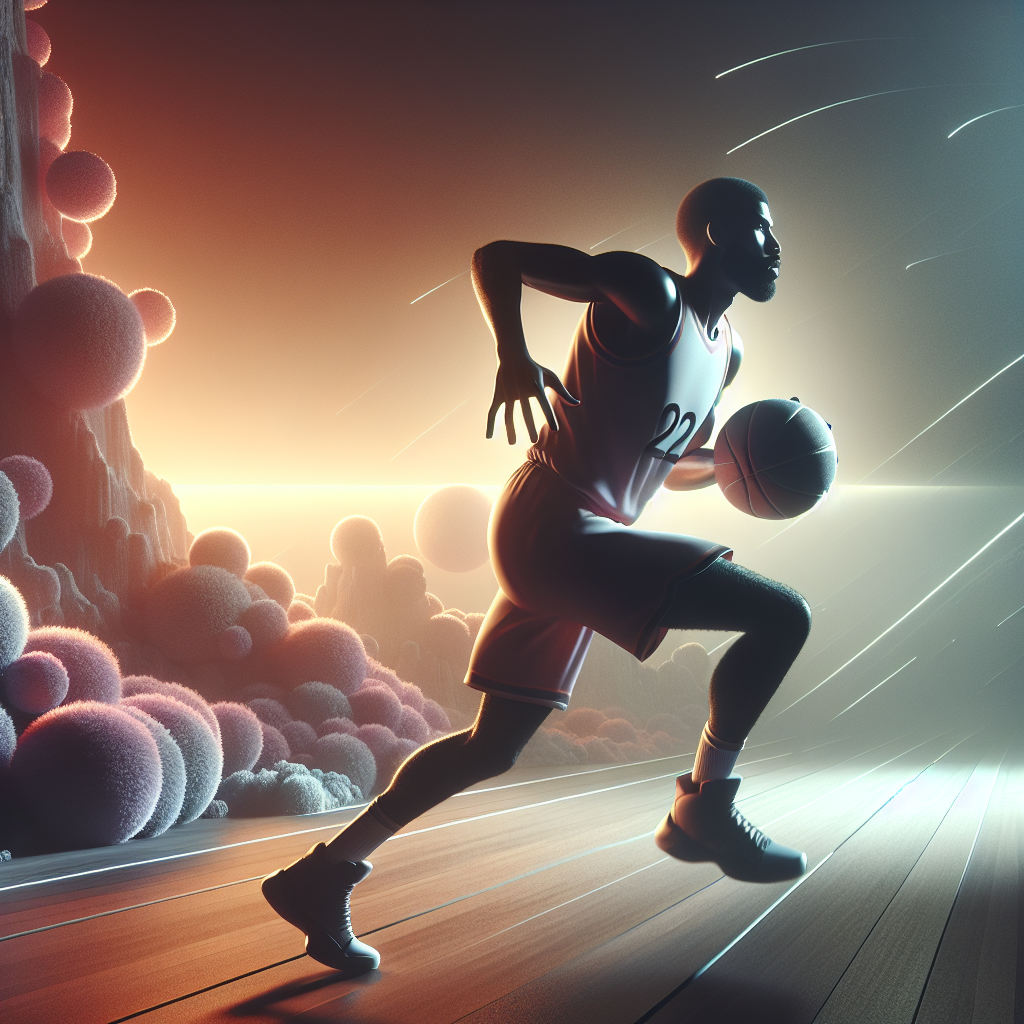De’Andre Hunter out at least 2 weeks

Impact Of De’Andre Hunter’s Absence On Team Dynamics
The absence of De’Andre Hunter from the lineup for at least two weeks presents a significant challenge for the team, both on and off the court. As a key player, Hunter’s contributions extend beyond his statistical output, influencing team dynamics in various ways. His absence necessitates adjustments that could impact the team’s performance and cohesion.
To begin with, De’Andre Hunter is known for his defensive prowess, often tasked with guarding the opposing team’s best perimeter player. His ability to disrupt offensive plays and provide a strong defensive presence is invaluable. Without him, the team may struggle to maintain the same level of defensive intensity, potentially leading to increased scoring opportunities for opponents. This shift could place additional pressure on other players to step up defensively, which might not only affect their individual performance but also alter the overall defensive strategy of the team.
Moreover, Hunter’s offensive capabilities cannot be overlooked. As a versatile forward, he contributes significantly to the team’s scoring, often providing crucial points during tight games. His ability to stretch the floor with his shooting and drive to the basket adds a layer of complexity to the team’s offensive schemes. In his absence, the team will need to find alternative scoring options, which could lead to a redistribution of roles among players. This adjustment might initially disrupt the offensive flow as players adapt to new responsibilities and attempt to fill the void left by Hunter.
In addition to the tactical implications, Hunter’s absence also affects team morale and leadership dynamics. As a respected figure in the locker room, his presence often serves as a stabilizing force. His work ethic and professionalism set a standard for his teammates, fostering a culture of accountability and dedication. Without him, the team may experience a temporary dip in morale, particularly if results do not go their way. It becomes imperative for other leaders within the team to step up and fill the leadership vacuum, ensuring that the team remains focused and motivated during this challenging period.
Furthermore, the coaching staff faces the task of re-evaluating their strategies and rotations. They must identify which players can best compensate for Hunter’s absence and how to optimize their strengths. This process involves not only tactical adjustments but also managing player minutes to prevent fatigue and potential injuries. The coaches’ ability to adapt and make effective decisions will be crucial in maintaining the team’s competitive edge.
In the broader context, Hunter’s absence provides an opportunity for younger or less-utilized players to gain valuable experience and showcase their abilities. This period could serve as a developmental phase for these players, potentially strengthening the team’s depth in the long run. However, this opportunity comes with the risk of inconsistency, as inexperienced players may struggle to perform under increased pressure.
In conclusion, De’Andre Hunter’s absence for at least two weeks poses a multifaceted challenge for the team. It affects defensive and offensive strategies, team morale, leadership dynamics, and player development. While the immediate impact may be challenging, the team’s ability to adapt and overcome these obstacles could ultimately lead to growth and resilience. The coming weeks will be a test of the team’s depth, adaptability, and determination to succeed despite the absence of one of their key players.
Potential Replacements For De’Andre Hunter During His Recovery

The Atlanta Hawks are facing a challenging period as they navigate the absence of De’Andre Hunter, who is expected to be sidelined for at least two weeks due to an injury. This development necessitates a strategic reassessment of the team’s lineup and rotation. As the Hawks aim to maintain their competitive edge, identifying potential replacements for Hunter becomes imperative. The team must consider various factors, including player versatility, defensive capabilities, and offensive contributions, to ensure a seamless transition during Hunter’s recovery.
One potential candidate to fill the void left by Hunter is Cam Reddish. Reddish, known for his defensive prowess and ability to guard multiple positions, could provide the Hawks with the defensive stability they need. His length and athleticism make him a formidable presence on the court, capable of disrupting opponents’ offensive schemes. Moreover, Reddish has shown flashes of offensive potential, and this opportunity could allow him to further develop his scoring abilities. By stepping into a more prominent role, Reddish could gain valuable experience and confidence, which would benefit both him and the team in the long run.
In addition to Reddish, Kevin Huerter presents another viable option for the Hawks. Huerter’s offensive skill set, characterized by his shooting accuracy and playmaking abilities, could help offset the scoring void left by Hunter’s absence. His ability to stretch the floor with his three-point shooting can create additional spacing for the Hawks’ offense, allowing other players to operate more effectively. Furthermore, Huerter’s experience and understanding of the team’s system make him a reliable choice to step into a larger role. His versatility in playing both guard and forward positions provides the coaching staff with flexibility in adjusting lineups based on matchups.
Moreover, the Hawks might consider giving more minutes to Solomon Hill, a seasoned veteran known for his defensive tenacity and leadership qualities. Hill’s experience in high-pressure situations could prove invaluable during this period of adjustment. While not as offensively dynamic as some of his teammates, Hill’s ability to contribute in various facets of the game, including rebounding and facilitating ball movement, could help stabilize the team’s performance. His presence on the court can also serve as a calming influence, particularly for younger players who may be stepping into expanded roles.
Additionally, the Hawks could explore the potential of utilizing John Collins in a more versatile capacity. Collins, primarily known for his prowess as a power forward, has the athleticism and skill set to adapt to different positions on the court. By experimenting with Collins in a more dynamic role, the Hawks could exploit mismatches and create new offensive opportunities. This approach would not only address the immediate need for Hunter’s replacement but also provide Collins with an opportunity to showcase his versatility and expand his game.
In conclusion, the Atlanta Hawks have several potential replacements to consider during De’Andre Hunter’s recovery period. Each option presents unique advantages and challenges, requiring the coaching staff to carefully evaluate the best fit for the team’s needs. By strategically utilizing the talents of Cam Reddish, Kevin Huerter, Solomon Hill, and John Collins, the Hawks can navigate this challenging period while maintaining their competitive edge. As the team adapts to this temporary setback, the experience gained by these players could ultimately strengthen the Hawks’ roster and contribute to their long-term success.
Analyzing De’Andre Hunter’s Injury And Its Implications For The Season
De’Andre Hunter, a key player for the Atlanta Hawks, is set to miss at least two weeks due to a recent injury. This development has significant implications for both the team and Hunter himself, as it comes at a crucial juncture in the season. Understanding the impact of his absence requires a closer examination of his role within the team, the potential adjustments the Hawks might need to make, and the broader consequences for their season aspirations.
Hunter has been an integral part of the Hawks’ lineup, known for his defensive prowess and ability to contribute offensively. His versatility allows him to guard multiple positions, making him a valuable asset in the Hawks’ defensive schemes. Offensively, Hunter has shown the capability to score efficiently, providing the team with much-needed balance. Therefore, his absence will undoubtedly be felt on both ends of the court. The Hawks will need to find ways to compensate for the loss of his defensive intensity and offensive contributions.
In light of Hunter’s injury, the Hawks’ coaching staff will likely need to make strategic adjustments. This could involve increasing the minutes of other players who can fill the void left by Hunter. For instance, players like Bogdan Bogdanović or Cam Reddish may see increased roles, tasked with stepping up their defensive efforts and contributing more consistently on offense. Additionally, the team might explore different lineup configurations to maintain their competitive edge. These adjustments will be crucial in ensuring that the team remains competitive during Hunter’s absence.
Moreover, Hunter’s injury could have implications for the team’s overall performance and standings in the league. The Hawks are in a highly competitive conference, where every game can significantly impact playoff positioning. Missing a player of Hunter’s caliber for an extended period could lead to challenges in maintaining their current standing. The team will need to rally together, relying on their depth and resilience to navigate this period without one of their key players. This situation presents an opportunity for other players to showcase their abilities and contribute to the team’s success.
Furthermore, Hunter’s injury raises concerns about his long-term health and its potential impact on his career trajectory. Injuries can be a setback for any athlete, and ensuring a full recovery is paramount. The Hawks’ medical team will need to carefully manage his rehabilitation process to prevent any further complications. Hunter’s return to the court should be approached with caution, prioritizing his health and well-being over a rushed comeback. This approach will be essential in preserving his future contributions to the team.
In conclusion, De’Andre Hunter’s injury presents a significant challenge for the Atlanta Hawks, affecting their immediate strategies and potentially their season’s outcome. The team must adapt to his absence by making strategic adjustments and relying on their depth to maintain their competitive standing. Meanwhile, ensuring Hunter’s full recovery is crucial for his long-term health and the team’s future success. As the Hawks navigate this period, the resilience and adaptability of both the team and Hunter will be tested, ultimately shaping the trajectory of their season.

